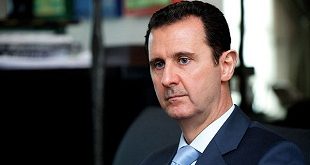Wealth does not “trickle down” to the poor. Oxfam, the International Monetary Fund, and the World Bank all know this now; poor people have always known it. So, when governments try to boost GDP at all costs, they are buttressing an exclusive economic system that harms hundreds of millions of people who are already stricken by poverty, illness, exploitation, and destitution.
Meritocracy is a myth as well. The world’s wealthiest did not earn their spoils through their own hard work. More than half of the world’s billionaires either inherited their wealth, or accumulated it in industries prone to corruption and cronyism.
The good news is that these wrongs can be righted. Bold, sensible, and practical solutions are already available. Building an economy that works for the 99% is an achievable goal. It is also long overdue, as evidenced by last year’s political upheavals, including the United Kingdom’s Brexit referendum, Donald Trump and Rodrigo Duterte’s victories in the United States and the Philippines, respectively, and falling support for South Africa’s ruling African National Congress. In all of these cases, the masses have been voicing their frustration.
We live in an increasingly unstable and violent world, where poor people – and women in particular – are seen as less valuable than others. But it is in everyone’s interest that we reverse the trend toward ever-greater inequality. There will be more than enough to go around in an economy that works for everyone, rather than the fortunate few. But if we continue on our current path, we could undermine the work that we have already done to eradicate poverty.
The theme for this year’s World Economic Forum Annual Meeting is “responsive leadership.” And, while governments have a pivotal role to play in creating a world where all can enjoy the fruits of prosperity, so, too, do the super-rich – many of whom are in Davos.
The message for them should be clear: Building a more inclusive economy requires redistribution. To end poverty, governments must combat the extreme concentration of wealth, not just by cracking down on tax evasion, but also by increasing taxes on wealth and high incomes. This will level the playing field, while also generating billions of dollars to invest in health care, education, and job creation.
But redistribution alone is not enough. To achieve prosperity for all, we will need to change our economic model. Governments must stop using market forces and technological change as alibis for their own failings. They need to push businesses to consider the social impact of their decisions, set the direction of technological development, and regulate markets to prevent a race to the bottom on wages and corporate taxation.
Humanity has the talent and the ingenuity to do better. We don’t have to accept an economy that doesn’t work, just because some people have profited from the status quo. That is not democracy. It makes both political and economic sense to put people first; and to create a world where everyone is fortunate, and no one is forgotten.
****
Winnie Byanyima is Executive Director of Oxfam International.
****
Copyright: Project Syndicate, 2017.
www.project-syndicate.org
 The Independent Uganda: You get the Truth we Pay the Price
The Independent Uganda: You get the Truth we Pay the Price


